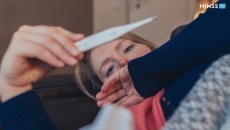Privacy & Security
Zero Trust
"Cyber criminals will use a time of crisis to cover some of their actions in a very opportunistic way. And so we try to track and match our operations and vigilance to that."
The cybersecurity program will be made available to hospitals, clinics, labs, frontline providers, device manufacturers and life sciences companies that are researching treatments.
Experts from Pew and Accenture discuss the challenges of patient matching, and describe how biometrics technologies can help.
Physicians are now allowed to care for patients at rural hospitals "via phone, radio or online communication, without having to be physically present."
At a HIMSS Digital presentation, former ONC Chief Privacy Officer Joy Pritts and Connected Health Initiative Senior Counsel Brian Scarpelli discussed some common misconceptions about the law.
Zero Trust
Covered entities and their cloud-service providers both have jobs to do when it comes to protecting hosted patient data – and have to strike a balance deciding who does what.
Zero Trust
Intelligence agencies, security firms and Big Tech giants and all ringing alarm bells over the growing threat from cybercriminals in the wake of the global COVID-19 pandemic – with ransomware attacks, opportunistic phishing threats and other malicious activities all threatening healthcare organizations worldwide.
While European governments look to digital health technology for ways to speed up their containment strategies, the long-term view is that the COVID-19 emergency will generate new approaches to sharing healthcare data once the pandemic has passed.
Chatbots can help free up health systems and get patients information in their home during the COVID-19 pandemic, says Buoy Health CEO Dr. Andrew Le.
COVID-19
Activists have raised privacy concerns about the involvement of big data firm Palantir.
